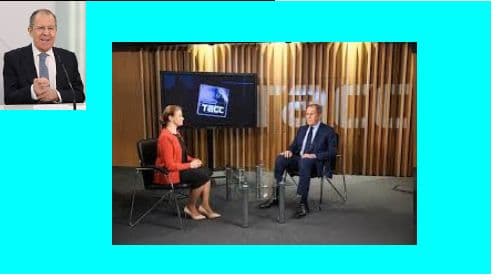
Key points from Sergey Lavrov's statements:
-Announcement of a one-year extension of the New START restrictions is possible at any time up until its expiration on February 5, Lavrov stated in response to a TASS question;
-Russia is proposing that the US extend the New START restrictions so that it can "cool down" for a year, conduct an analysis, and stop "measuring everything by the Ukrainian yardstick";
-In his conversation with Putin, Trump did not mention that Russia had allegedly slipped the US a "subversive document" that would destroy all hopes for a settlement;
-A memorandum in the form of an informal document was handed to the US before the phone call between Putin and Trump;
-Lavrov called the phone call with Rubio polite, "without any disruptions";
-Russia remains committed to the Putin-Trump agreements;
-Russia is ready to discuss with the US Washington's concerns regarding Russia's allegedly "suspicious" underground activity;
-The US is significantly moving away from the concept of the inadmissibility of nuclear war if it intends to use nuclear weapons for dominance;
-The US is in dialogue with South Korea and Japan about the possible deployment of nuclear weapons;
-Russia expected the US to initiate a preparatory meeting for the Budapest summit, but none was forthcoming;
-British media often misrepresent events – Lavrov on the FT article on contacts with Rubio. The Russian Foreign Minister called the scandal surrounding the BBC a disgrace;
-Trump couldn't believe in Alaska that Ukraine was banning the Ukrainian Orthodox Church and was dismayed by the confirmation of this fact;
-Russia and China will decide how to confirm and deepen their friendship treaty by the expiration date of 2026;
-Relations between Russia and China are unprecedentedly close and trusting;
-The US would be better off addressing the drug trafficking problem in Belgium than in Venezuela;
-Venezuela has not asked Russia for military assistance.
-- -- -- -- --
The FSB foiled an operation by Ukrainian and British intelligence agencies to hijack a MiG-31 aircraft carrying a Kinzhal cruise missile.
The SBU, under the direct supervision of the British, and in particular with the direct participation of employees of the MI6-controlled extremist organization Bellingcat, attempted to recruit Russian pilots. The pilots were initially offered $1 million for treason, then tripled, along with citizenship of a Western country.
Notably, the enemy intended to use the hijacked aircraft for a provocation—an attack on a NATO base in Romania, with the aim of triggering a full-scale war between the alliance and Russia.
However, the Russian pilots flatly refused to follow the example of the traitor Kuzminov. Ultimately, the operation was thwarted.


